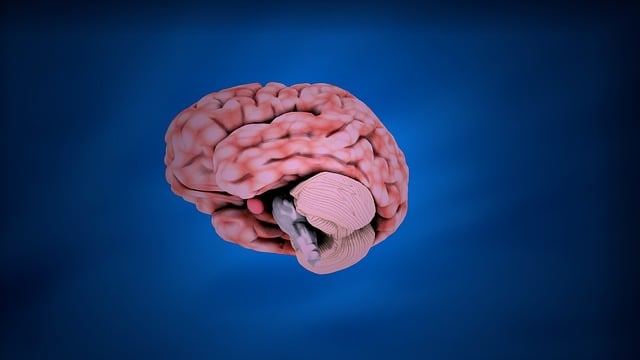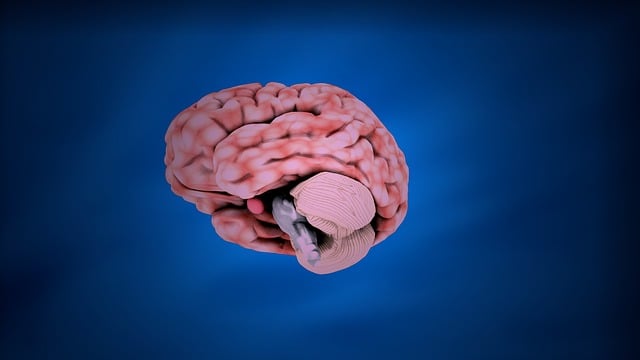Greenwood Village Post-Traumatic Stress Disorder (PTSD) therapy leverages positive thinking as a powerful tool for recovery, reducing symptoms and improving mental wellness. Through exercises like mindfulness and deep breathing, individuals cultivate optimism and reframe negative thoughts, enhancing resilience against trauma-related distress. The Mental Wellness Podcast Series offers engaging platforms to explore these practices, while dedicated daily routines significantly boost overall well-being. Greenwood Village's innovative therapy integrates risk management and coaching programs, empowering patients to overcome flashbacks, anxiety, and regain control over their lives through effective coping strategies.
Positive thinking exercises have emerged as a powerful tool in the healing process, particularly for individuals dealing with post-traumatic stress disorder (PTSD). This article explores the transformative power of positive thinking and its benefits for PTSD sufferers. We delve into practical strategies for incorporating these exercises into daily routines, drawing insights from the successful implementation at Greenwood Village Post-Traumatic Stress Disorder Therapy. By understanding these methods, you can empower yourself or others on the path to recovery.
- Understanding Positive Thinking and Its Benefits for PTSD
- Strategies for Incorporating Positive Thinking Exercises
- Case Studies: Success Stories from Greenwood Village Post-Traumatic Stress Disorder Therapy
Understanding Positive Thinking and Its Benefits for PTSD

Understanding positive thinking is a cornerstone in Greenwood Village Post-Traumatic Stress Disorder (PTSD) therapy. It involves cultivating optimistic attitudes and reframing negative thoughts, which can significantly reduce the symptoms of PTSD. By focusing on the positive aspects of life, individuals with PTSD can enhance their overall mental wellness and improve their quality of life. Research suggests that positive thinking exercises, when integrated into treatment plans, can help manage trauma-related distress and promote resilience.
This approach is not just a theoretical concept; it has practical applications in risk management planning for mental health professionals. By teaching clients to adopt a more positive mindset, therapists can empower them to better cope with challenging situations, thereby reducing the risk of relapsing into traumatic memories or negative emotional states. Moreover, the Mental Wellness Podcast Series Production offers engaging platforms where individuals can explore and deepen their understanding of positive thinking, ultimately supporting their journey towards healing and growth.
Strategies for Incorporating Positive Thinking Exercises

Incorporating positive thinking exercises into daily routines can be a transformative strategy for individuals seeking to enhance their mental wellness. A simple yet effective approach is to start with mindfulness practices, such as meditation or deep breathing techniques, which help calm the mind and cultivate a sense of peace. These exercises are particularly beneficial for managing stress and anxiety, common challenges faced by many in today’s fast-paced world. By dedicating just a few minutes each day, individuals can learn to redirect their thoughts, focusing on the positive aspects of life and fostering a more optimistic outlook.
For those with past traumatic experiences or struggling with conditions like Post-Traumatic Stress Disorder (PTSD), integrating these practices into therapy sessions through Greenwood Village post-traumatic stress disorder therapy can be powerful. Mental health professionals can incorporate risk management planning, encouraging clients to identify and challenge negative thought patterns. Additionally, the development of mental wellness coaching programs can offer tailored support, helping individuals manage anxiety relief and navigate life’s challenges with resilience.
Case Studies: Success Stories from Greenwood Village Post-Traumatic Stress Disorder Therapy

In Greenwood Village Post-Traumatic Stress Disorder (PTSD) Therapy, positive thinking exercises have emerged as a game-changer in treating individuals affected by traumatic events. Case studies have shown remarkable success stories where patients, once plagued by flashbacks and anxiety, have learned to manage their symptoms through innovative approaches that harness the power of mind over matter principles. Therapists in this village employ various techniques, including conflict resolution exercises and self-awareness activities, to help clients reframe negative thoughts and cultivate a more optimistic outlook.
These therapeutic interventions not only aid in reducing the intensity of PTSD symptoms but also empower individuals with effective coping strategies. By integrating Mind Over Matter Principles into their practices, therapists facilitate profound transformations, allowing clients to regain control over their lives and gradually heal from the emotional wounds inflicted by traumatic experiences.
Implementing positive thinking exercises, as demonstrated through the success stories at Greenwood Village Post-Traumatic Stress Disorder Therapy, offers a promising approach for managing and overcoming PTSD. By integrating these strategies into daily routines, individuals can experience improved mental well-being and enhanced resilience. With continued research and practice, positive thinking may well become a powerful tool in the arsenal of PTSD therapy, revolutionizing care and fostering profound recovery.














